where is this place מצרים? Is it the Egypt we know?
I ask these questions in my Haggadah. And I answer:
Yes, though only the name of the place is the same, the people have changed. In fact we are at peace and allied with the Egypt of today.
The Egypt of the Haggadah is more than a place, it is more than a nation state, it is a state of mind.
Our Hebrew word for that place is “Mitzra’yim”, that is: the straits, or narrows. The geographical Mitzra’yim is a pinched green strip of land in the midst of desert along the shores of the Nile River. The metaphorical Mitzra’yim is any restriction.
I find it very sad to note that most of the Egyptian population seems to live in the metaphorical Mitzray’im even as their world expands due to their efforts of the events of the “Arab Spring”.
In an odd coincidence, The New York Review of Books, in its current issue (September 2, 2011), published an article by Yasmine El Rashidi, a former columnist for the Wall Street Journal, titled Egypt’s Israel Problem.
And then, Friday night (September 9, 2011) Al Jazeera reported:
Egyptians break into Israeli embassy in Cairo
Interior ministry declares state of alert and prime minister summons cabinet crisis team to discuss the situation.
Actually, the comments on the NYRB article are not half bad. I’m surprised at the level of knowledge (and what comments get “liked”), in particular this item by Steve Runciman (no not that Steven Runciman; there seem to be a number of possibilities; who he is is unclear) on 09/04/2011 09:13 AM:
The article is somewhat misleading. According to Israel, three of the terrorists, who killed civilians, were Egyptians and it seems undisputed they emerged from right under an Egyptian army post. Does the Egyptian public know this, or care? The exact circumstances of the Egyptian deaths are unclear still — some of them may have been killed by the terrorists. But why wait for the facts when you can blame Israel? In addition, left unstated, is why is there this “deep rooted” animosity to Israel? Just saying Palestine is not enough. If the Kingdom of Jordan occupied all of Palestine, would there be “deep rooted” animosity? Somehow I doubt it. No deep rooted animosity to Syria when it occupied Lebanon. Palestine is just a word. The reason for the deep rooted animosity is purely religious. Why not acknowledge that? Because it would interfere with the phony liberal narrative presented to the West.
deep rooted animosity
I saw some of the basis for this encouraged animosity when in Cairo in June 2007, where the bookstore of the Cairo Sheraton hotel in which we stayed carried an unpleasant selection.
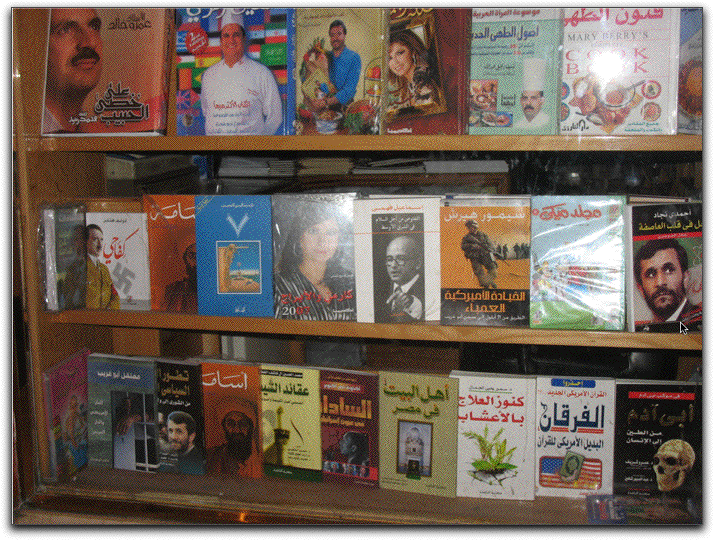
yes, that is Mein Kampf on the left in the second row
more examples (selected from many) of encouraged animosity
- Antisemitic Articles in the Egyptian Government Press: Jews are Descendants of Apes and Pigs; Protocols of the Elders of Zion are Being Realized in Today’s Middle East
- Article in Egyptian Daily: The Jews Are behind the Clashes between Egypt’s Muslims and Copts
- Egyptian Cleric Abdallah Samak: The Jews, Who Slayed the Prophets, Are Known for Their ‘Merciless, Murderous, and Bloodthirsty Nature’
- Egyptian Daily Publishes Antisemitic Dissertation by the Late Al-Azhar Sheikh Tantawi; In It, He States ‘The [Jews’] Abominations Described in the Koran Are Demonstrated Throughout the Ages,’ Recounts Damascus Blood Libel
august 18, 2011
Let’s take another look at the August 18, 2011 event, so we can have it here on record. It seems to be the immediate catalyst for the destruction of the Israeli embassy in Cairo.
Israelis killed in attacks near Egypt border
Gunmen attack a bus carrying soldiers, a car and a military patrol near southern resort of Eilat
Then a few hours later…
Egypt army officer, 2 security men killed in Israeli border raid
We are told: “The three [Egyptians] were killed as the Israeli military chased militants along the border of Egypt’s Red Sea resort of Taba in South Sinai and the Israeli city of Eilat.”
I’ve been to Taba, it’s an easy walk from the Israeli border crossing to what was an Israeli-built resort, the Taba Hilton.
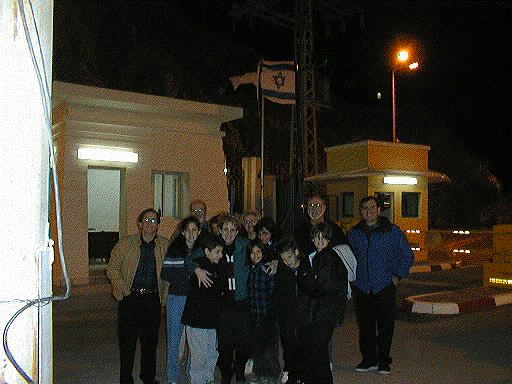
crossing from Israel to Egypt at Taba, December 31, 1997
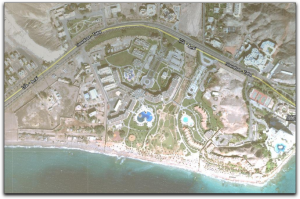
the taba resort in egypt
This is where the events occurred:
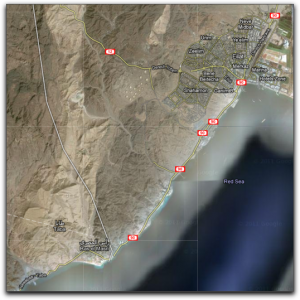
border & route from taba to eilat
three weeks and onward
How different Egyptians saw the night of the Israeli Embassy break-in
While the events of the past three weeks are dispiriting, and Friday night’s events in Cairo are particularly upsetting, I do not want to allow them to color my hopes for the Egyptian people. I know very little about Egyptian politics. I have not watched the Twitter feed recently and am not aware of any Twitter hashtag for the events. @SmithSofia, a young (Egyptian?) woman I encountered during this summer’s Flotilla attempt does not seem to be particularly involved in what happened at the embassy. I do, however periodically catch the tweets of a fellow named @abuhatem a self-described “classical liberal”, who shared this thought on September 6.
If there are two parties platforms that could truly build a modern and free Egypt and be example to Arab world: Hamzawy’s [Freedom Egypt Party] and [the] Free Egyptians [Party].
I never see reference to these groups in the press that I have available to me. I do not know what role they, or their members/followers, played in the events of this past weekend. I hope that, even if they do not expect to be the best of friends with Israel and the Jewish people, they will at least recognize the value of the quiet that we currently share if not a hoped for warm peace.
When I began thinking about this situation the validity of the phrase
a cold peace is better than a hot war
came to mind. We have long felt that the peace situation between Israel and Egypt had not lived up to the hopes expressed when Begin and Sadat met in Jerusalem in November 19–20, 1977. It is not as warm as it could be, but it has definitely been better than war. I wondered where the phrase “cold peace” originated. “Cold War” in contrast with “hot war” is a phrase that seems to have been used first by George Orwell. When I searched for the phrase in Google, I did not come up with anything helpful.
so I enlisted Jay
On a site that’s apparently devoted to soccer an ongoing thread from at least 1999 has a 2002 comment with the phrase. A book from 2003 (which I have no interest in reading) credits Netanyahu with saying it (p. 67). A newsletter from an institute at Ben Gurion University notes that Arieh Naor used the phrase in a lecture he gave in 2004.
Most of the references seem to be to the Middle East. One that brings up the phrase in the context of Bosnia is from
2005.In 2002 a gamer used the phrase — seems to me in the context of an MMOG.
Jay added:
“Is there an original source? Had I known that nobody claimed it, I’d happily have tried to take out a copyright on it. It’s strange that it doesn’t seem to have someone historic behind it.”
Searching on quotations sites, I quickly came to what appears to be the urtext:
The most disadvantageous peace is better than the most just war.
– Desiderius Erasmus (1469−1536) [an older contemporary/neighbor of Spinoza; ah that Dutch renaissance was a great time/place]
Amazingly enough the Erasmus’ phrase turns up (at the top, in alphabetical order) on a site devoted to Yiddish Sayings as though it had been invented by Jews!
Regardless of the phrase’s origins, it’s validity is real. I remember how thrilled we were when Sadat visited Jerusalem causing a major shift in perceptions throughout the region. One of the limitations of the peace treaty signed by Sadat and Begin at Camp David was that it was signed by an Egyptian autocrat, regardless of how forward looking he may have been. A major complaint of the Egyptian people relates to the fact that they were not involved in the process of arranging a peace treaty with Israel. That is rectifiable. The Geneva Accord, an Israeli-Palestinian Initiative to End the Conflict, like the People’s Peace Treaty of Vietnam War days, offers us all that opportunity. We can grow beyond our constricting bounds, reach out to one another and make the מצרים of the Haggadah no more than a metaphor for the past.
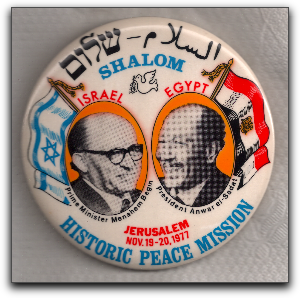
للسلام שלום
I have had this button for many years, though I’ve never worn it. at 10.16 centimeters (over 4″) in diameter, it’s a bit large and heavy. It is more of a souvenir piece than a wearable button. Nonetheless, I’m glad I have it, and I share it now as a reminder of a hope that people thought was impossible, yet came to be.
| Date: | 1977 |
| Size: | 10.16 |
| Pin Form: | clasp |
| Print Method: | celluloid |
| Text | للسلام שלום
SHALOM ISRAEL EGYPT Prime Minister Menachem Begin President Anwar el-Sadat JERUSALEM NOV. 19–20, 1977 HISTORIC PEACE MISSION |
your lapel buttons
Many people have lapel buttons. They may be attached to a favorite hat or jacket you no longer wear, or poked into a cork-board on your wall. If you have any laying around that you do not feel emotionally attached to, please let me know. I preserve these for the Jewish people. At some point they will all go to an appropriate museum. You can see all the buttons shared to date.

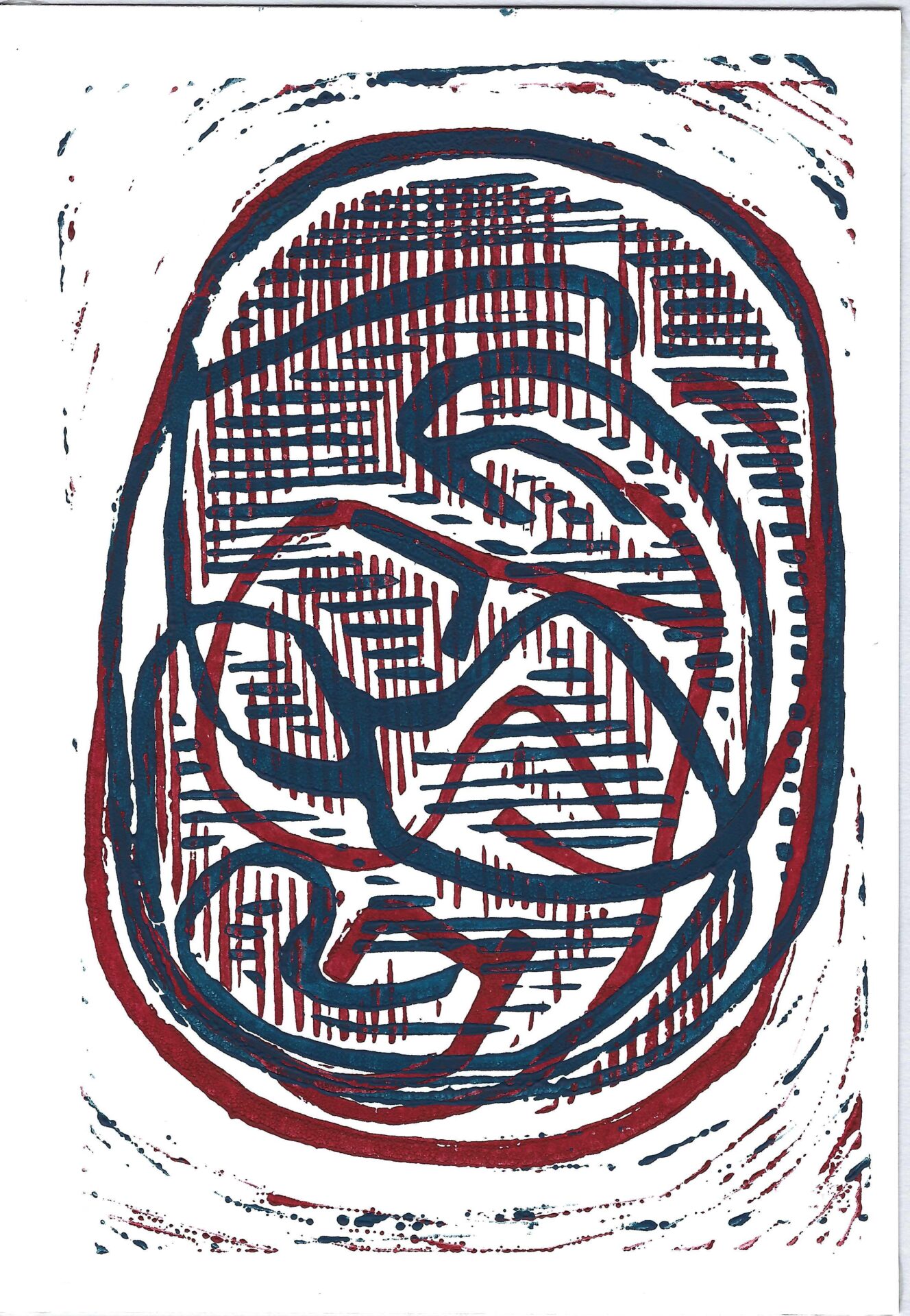
Terrific post.
For further context, Michael Totten’s recent post is very worth reading.
http://pajamasmedia.com/michaeltotten/2011/09/11/egypt’s‑botched-revolution/
He argues, and I’d agree, that Sadat and Mubarak were just as anti-Israel as Nasser, but needed Camp David for the army’s own interests.
Of course, the army still rules Egypt and is unlikely to allow much to change, other than to come to a more stable understanding with the Muslim Brothers.